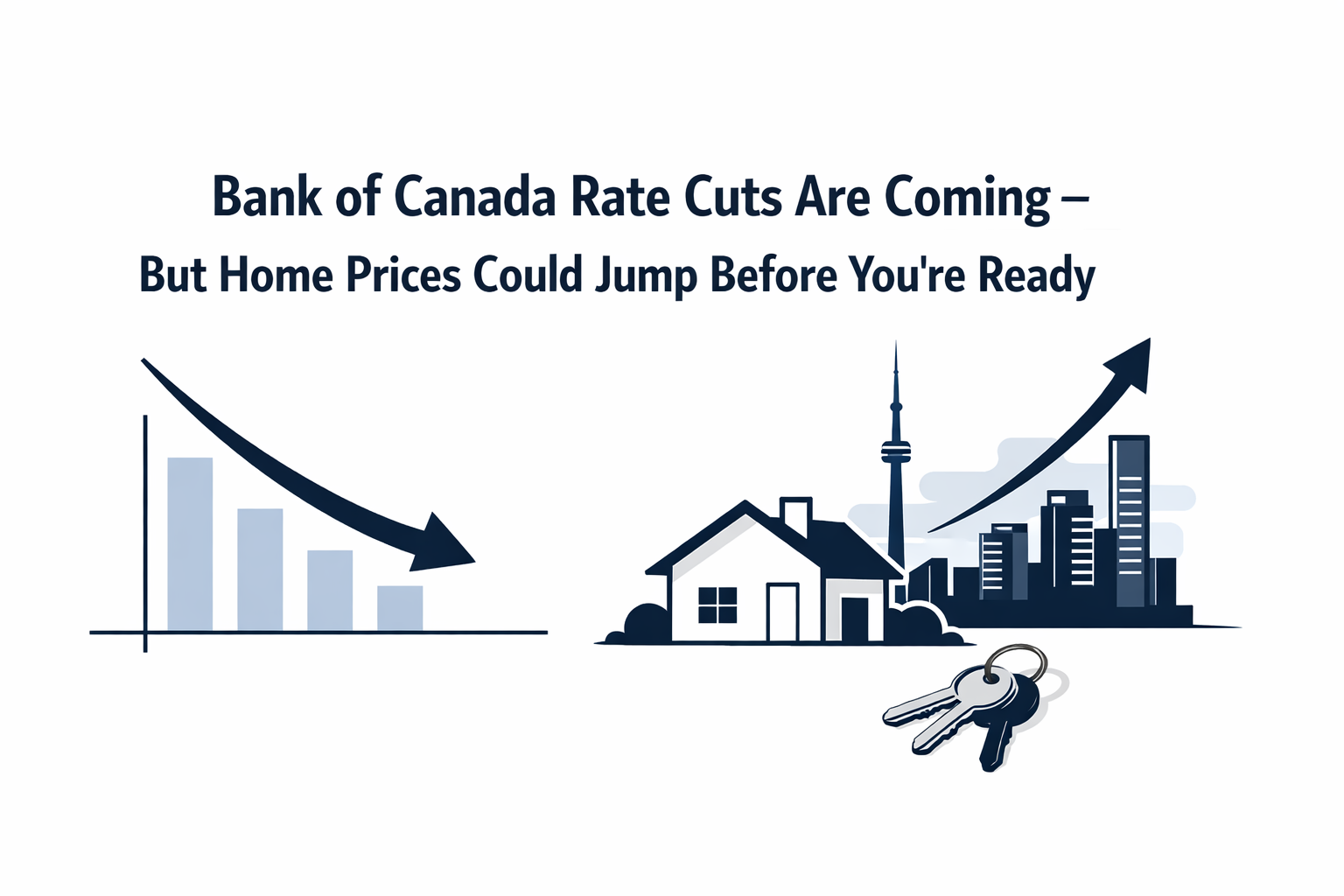Bad Credit Mortgage Options in the Greater Toronto Area

Bad Credit Mortgage Options in the Greater Toronto Area
Having a low credit score doesn't mean you can't own a home.
In the GTA, many buyers with bruised credit still find solid mortgage solutions — it just takes the right strategy, preparation, and guidance.
Here’s a full breakdown of how to navigate bad credit mortgage options in the GTA and turn your dream of homeownership into a reality.
What Counts as Bad Credit?
Typically, lenders consider a credit score below 600 to be “bad credit.”
Several factors can lower your score, including:
- Late or missed payments (credit cards, loans, utilities)
- High credit utilization (balances close to limits)
- Bankruptcies or consumer proposals
- Collections or judgments
A low score signals higher risk to lenders — but it’s not a dead-end.
With the right plan, you can still qualify for a mortgage.
How Bad Credit Affects Your Mortgage Application
When you apply for a mortgage with bad credit, lenders typically adjust the terms to protect themselves. You may face:
- Higher interest rates
Riskier borrowers are charged higher rates to offset the lender’s risk. - Larger required down payment
You might need 20% to 35% down (instead of the standard 5% to 10%) to qualify. - Fewer lender options
Many traditional banks ("A lenders") may decline applications below certain thresholds. You'll likely work with alternative lenders (B lenders) or private lenders.
Good news:
Income strength, down payment size, and a good explanation for your credit issues can still win lenders over.
Mortgage Options for Bad Credit Buyers in the GTA
Even with bad credit, you have a few solid mortgage pathways:
1. Private Lenders
Private lenders specialize in working with borrowers who don't meet traditional criteria.
They offer more flexibility but often come with:
- Higher interest rates (typically 7%–12%)
- Shorter loan terms (1–3 years)
- Additional lender and brokerage fees
Private mortgages are often a short-term bridge solution while you rebuild your credit.
2. B-Lenders
B-lenders (alternative institutional lenders) sit between banks and private lenders.
They offer more favorable terms than private lenders but still allow for credit issues like:
- Scores in the 500–600 range
- Past bankruptcies discharged over 2 years ago
- Higher debt-to-income ratios
You’ll likely need a larger down payment and proof of stable income.
3. Co-Signer Mortgages
Adding a trusted co-signer with strong credit (like a parent or sibling) can strengthen your application dramatically.
Benefits of using a co-signer:
- Better rates
- Lower down payment
- Higher approval chances
Important:
A co-signer shares full legal responsibility for the loan, so it’s a major commitment.
Steps to Improve Mortgage Approval Odds
If you’re aiming for approval despite bad credit, here’s how you can boost your chances:
1. Save a Larger Down Payment
The more you put down (ideally 20%-35%), the lower the lender’s risk — and the better your odds of approval.
2. Show Strong, Stable Income
Proving consistent income through pay stubs, T4s, or bank deposits reassures lenders that you can handle the payments, even if your credit isn't perfect.
3. Provide a Strong Letter of Explanation
Lenders appreciate honesty.
Prepare a Letter of Explanation outlining:
- Why your credit suffered (illness, job loss, divorce, etc.)
- What you’ve done to improve
- Why you're now a safe borrower
4. Improve Your Credit Before Applying
Even small improvements (like paying down credit cards) can bump your score 20–40 points in a few months — which may open better mortgage options.
Smart Tip:
Avoid applying for new credit cards or loans during the mortgage approval process.
Risks of Bad Credit Mortgages
While it’s great to secure a mortgage, bad credit loans do come with risks:
- Higher monthly payments
Due to higher interest rates. - Shorter loan terms
Often 1–3 years, meaning you’ll need to refinance again soon. - Future requalification risk
If your credit doesn’t improve, refinancing could become difficult — so planning for improvement is crucial.
Bottom line:
Always have a long-term game plan to eventually transition back to a traditional “A lender” mortgage with better rates and terms.
How a Mortgage Agent Helps Bad Credit Buyers
Navigating the bad credit mortgage world alone is risky.
A skilled mortgage agent specializing in non-traditional lending can:
- Connect you with the right lenders (private, B-lenders, credit unions)
- Negotiate better terms and rates based on your profile
- Structure your application strategically to highlight your strengths
- Create a refinancing plan to move you back into prime rates within 1–3 years
Agents know which lenders are bad-credit friendly and how to package your file for the best chance of success.
Remember:
Private and alternative mortgages are often stepping stones — not permanent solutions. A smart plan makes all the difference.
Final Thoughts
Bad credit shouldn’t stop you from owning a home in the Greater Toronto Area.
It simply means you need a better plan, a bigger down payment, and the right people helping you.
With careful preparation, the right mortgage agent, and a little patience, you can build a homeownership future even after past credit struggles.
📞 Facing credit challenges but still want to buy a home? Call Garry Sidhu today at 437-961-0004 for a personalized mortgage plan!



